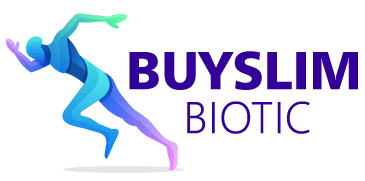Empower your well-being with our comprehensive guide on Nutrition for Women. Tailored to female nutritional needs, our resource covers essential vitamins, minerals, and dietary practices to support health through all stages of life. Nourish your body, enrich your life
Nutrition for Women have specific nutritional needs as a result of hormonal changes during adolescence, childbearing and menopause. These include calcium and iron. Women should limit their intake of processed fats, which have been shown to increase heart disease risk.
Folate, or vitamin B9, is an important nutrient for women of childbearing age. It reduces the risk of neurological birth defects in early pregnancy.
Balanced Diet
A well-balanced diet provides the body with essential nutrients in the right amounts for healthy functioning. It should contain foods from all food groups including vegetables, fruits, grains and proteins. A healthy balance of nutrients also includes proper water intake, minimal fat and low levels of sodium. Women should avoid highly processed and fast foods as well as foods high in sugar.
A healthy diet is especially important during women’s teen years, childbearing years and senior years. Certain nutrients are more important at these stages of life than others, and a balanced diet can help meet the body’s unique requirements throughout each stage of life.
For example, women of childbearing age need to get adequate calcium and iron to prevent osteoporosis later in life. They also need to consume foods rich in folate (vitamin B9) to lower the risk of neurological birth defects during pregnancy.
variety of foods
Women should try to eat a variety of foods from each food group and limit the amount of added fats in their diet, especially saturated and trans fats. They should eat unsaturated fats, such as those found in olive oil, vegetable oils and spreads, instead of butter and lard. They should also eat moderate amounts of healthy fats, such as those in nuts and seeds.
A well-balanced diet should include sufficient protein to ensure a healthy supply of amino acids, which are building blocks of the body’s cells. Lean meats, fish, soy products, poultry and dairy are good sources of protein. Women should choose these protein sources over red meat, which is higher in saturated fat.
Calories are necessary for energy, and they should come from a variety of healthy foods, such as whole grains, fresh fruits and vegetables, low-fat dairy and lean proteins. It is important to avoid sugary drinks and high-fat foods, as they provide empty calories that do not offer the body with any nutrients.
Adequate nutrition is important for all people, but it’s particularly critical for women. Malnourished women are more likely to suffer from a wide range of health problems, from cognitive impairments and short stature to a weak immune system and increased risk of disease and death.

Premenstrual Syndrome (PMS)
If you have PMS, you experience symptoms each month in a cyclic pattern around the time of your menstrual period. You may notice changes in your mood or physical sensations, like bloating and fatigue. You might also feel emotional changes, such as anger and irritability. PMS is usually mild, but in some cases, it can be severe enough to interfere with your daily life. If you have PMS, your healthcare provider will help you manage your symptoms.
The most common treatment for PMS is dietary and lifestyle changes, such as cutting back on foods that aggravate your symptoms. This includes eating more whole grains, fruits and vegetables, and avoiding sugar, salt, caffeine, and alcohol. You can also try drinking lots of water to ease bloating, and herbal teas such as red raspberry leaf or chamomile to relieve cramps. Exercise can help reduce fatigue and mood swings, and relaxation techniques such as deep breathing or meditation can relax you.
Premenstrual Syndrome (PMS)
Many over-the-counter and prescription medications can treat PMS symptoms, including antidepressants, diuretics (“water pills”), painkillers and anti-anxiety drugs. Hormonal birth control pills can also reduce the severity of PMS by regulating levels of progesterone and estrogen. If your symptoms are severe, your healthcare professional may prescribe more powerful medications.
There are a few nutritional supplements that have been shown to help with PMS, including magnesium, vitamin B6, and calcium. However, there aren’t many studies on these supplements, so talk to your doctor before taking them.
Some women also report relief from a variety of herbal remedies, including chasteberry (Vitex agnus), ginger, evening primrose oil, and St. John’s wort. Because these herbs aren’t regulated by the FDA in the same way that over-the-counter and prescription medications are, it’s a good idea to talk to your doctor before trying them. Many herbal treatments can be dangerous if you take too much or too little of them, or if they interact with other medications that you’re taking. You should also avoid taking ginkgo biloba, yarrow, and dong quai, which haven’t been proven effective in relieving PMS.
Pregnancy
When a woman becomes pregnant, her body goes through major hormonal changes. She is also caring for another life inside her, so it’s important for her to eat well and stay healthy. This will also help prevent complications during the pregnancy. It’s important to avoid anything that could harm the baby, such as junk food and alcohol.
A nutritious diet during pregnancy includes a Nutrition for Women and nutrients from all food groups. It should be low in saturated and trans fats, added sugars and sodium. It should include whole grains, fruits, vegetables, protein-rich foods like lean meats and nuts, milk and dairy products with reduced fat, and oils containing monounsaturated and polyunsaturated fats.
Some women may need to take extra iron and folic acid during pregnancy. This is particularly true if the woman has certain health conditions or has had previous pregnancies or miscarriages. These nutrients can be obtained from a wide range of sources, including foods like fish, whole grains, beans, tofu, eggs and vegetables. Women should not follow a fad diet during this time, as it can result in nutrient deficiencies or even malnutrition. In addition, women should always consult with their health care provider to determine the amount of dietary intake they need.
Menopause
As women approach menopause (when a woman stops having periods) and enter this new stage of life, their nutritional needs change. Women should talk to their health care provider about their symptoms and how they can best support a healthy diet during this time.
Many women experience some or all the symptoms of menopause. Often, these include hot flashes and vaginal dryness. In some cases, these symptoms may be so severe that they interfere with a woman’s quality of life. The good news is that menopause does not necessarily lead to other health problems, such as heart disease or osteoporosis.
Menopause
The aging process affects women differently than men, but scientists are just beginning to understand the impact on their bodies and minds. NIA-funded researchers are studying how the menopausal transition might contribute to changes in brain structure and energy processes.
Research has found that hormone therapy may help alleviate some of the discomforts associated with the menopausal transition. However, women who decide to use hormones should work with their healthcare providers to develop a plan that includes regular blood tests and other measures to ensure they’re receiving the benefits and avoiding the risks.
For many women, a diet low in fat can be helpful during the menopausal transition. But it’s important to remember that reducing calories without getting adequate nutrients can actually be harmful. Women should talk to their doctors about the best ways to get more nutrients while still maintaining a low fat intake.
Women should start these discussions well before they enter this time of life and discuss with their healthcare providers the dietary requirements they will need during the menopausal transition. It’s crucial to locate additional information sources as well. One such resource is the Mayo Clinic app Midday Nutrition for Women, which offers materials and instructional tools on the impacts of menopause. This contains fact sheets, videos, recipes, and advice on eating healthily for women going through menopause. Women can use the app to locate nutrition-related information specific to their dietary needs and to identify food sensitivities.





